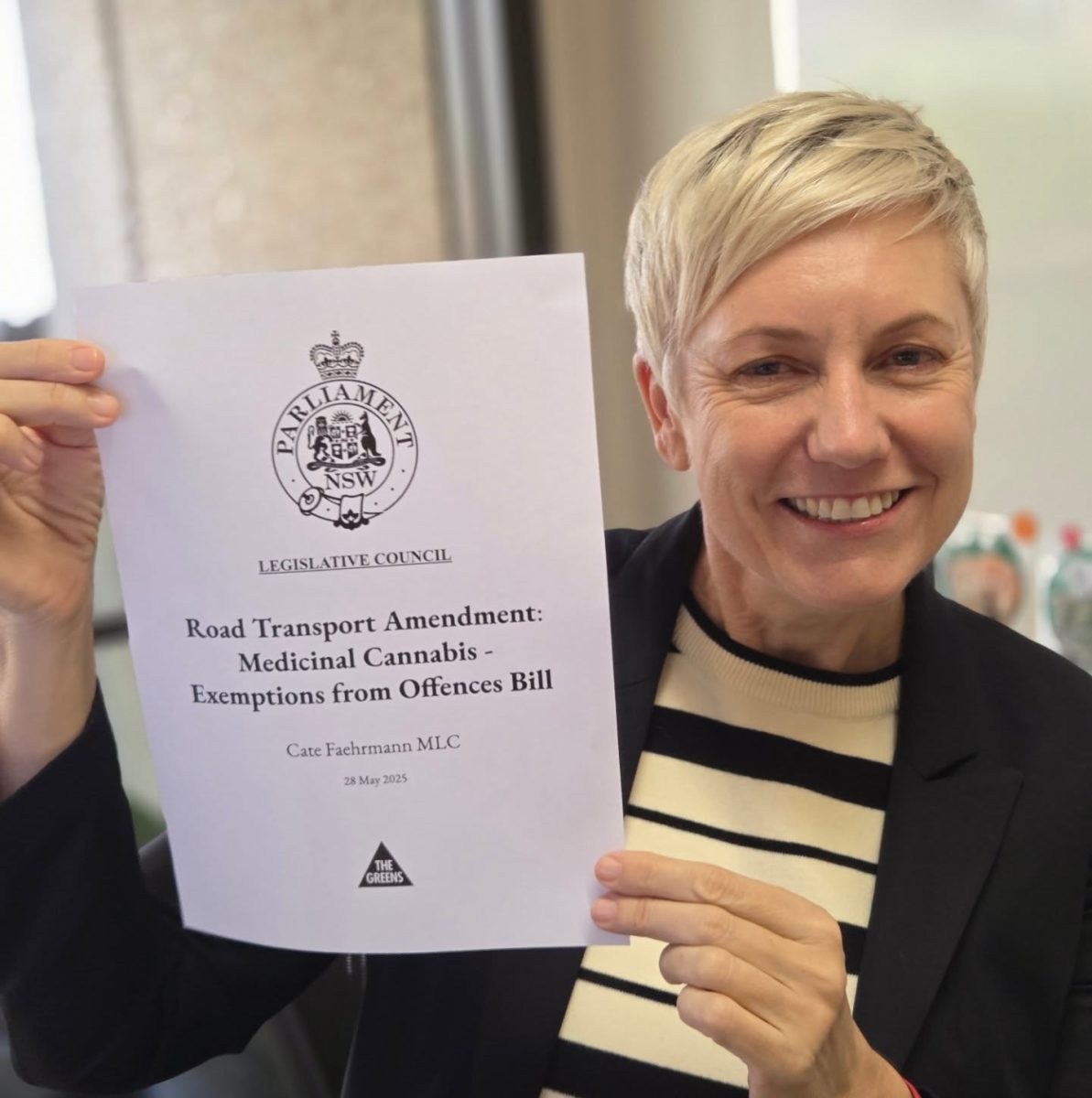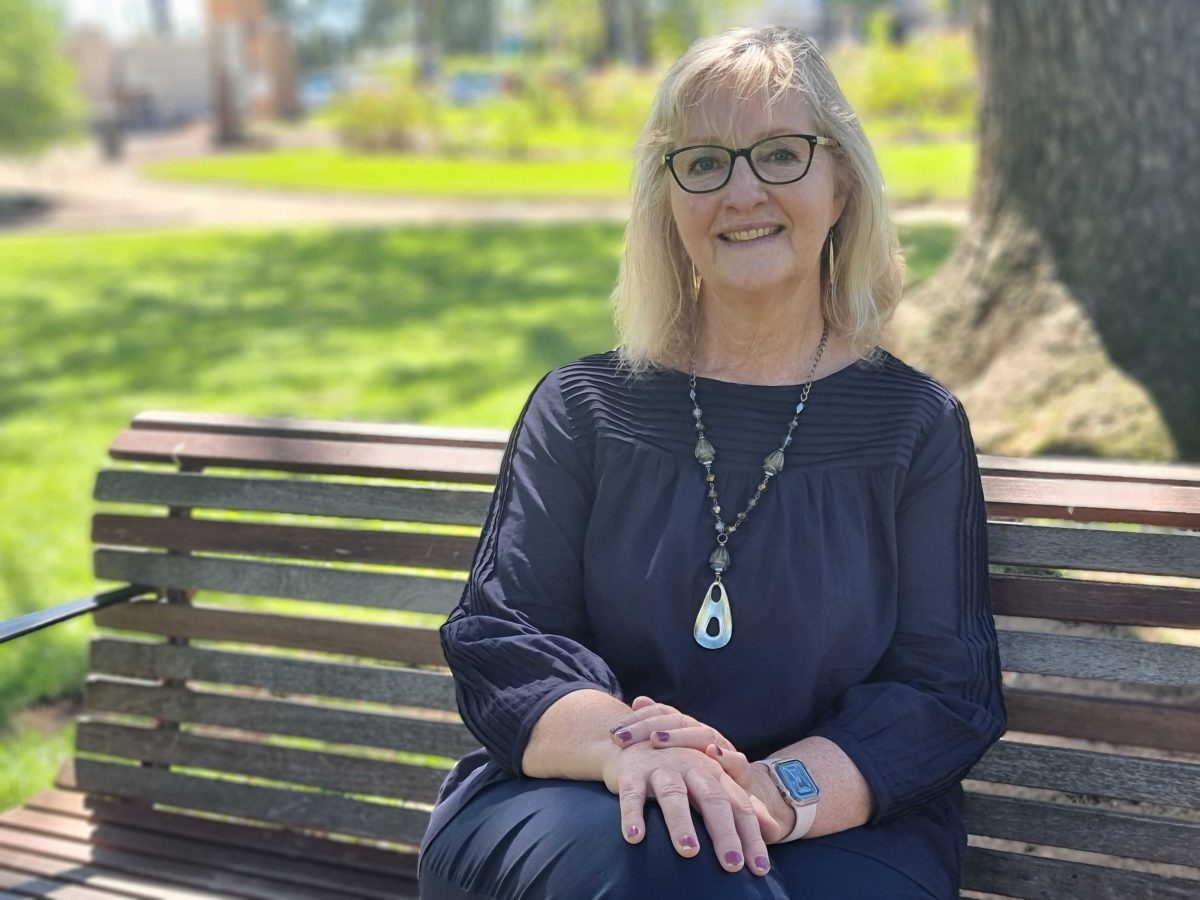
Greens MP Cate Faehrmann intends to introduce a bill that provides medicinal cannabis users with a medical defence when driving. Photo: Facebook.
A Greens NSW bill exempting medicinal cannabis users from being booked for driving offences related to its use, introduced in parliament last week, has gained support from key Riverina advocates.
At present, drivers risk losing their licence for three months if any traces of tetrahydrocannabinol (THC), a component in the cannabis plant, is found in their system during a roadside drug test. They will be booked even if they are not impaired.
People prescribed drugs such as morphine are provided a medical defence against testing positive while driving. Alcohol, while a non-prescription drug, is allowed up to a certain extent.
“You can have a couple of drinks, and you’re allowed to drive as long as you don’t reach that point [of] 0.5 level, as that’s basically a level where you are understood to be too impaired to drive,” Wagga-based Greens councillor Jenny McKinnon said.
NSW MP Cate Faehrmann intends to remove the discrimination on medicinal cannabis that forces patients to choose between a drug they were prescribed or the risk of having their licence revoked, based on a key recommendation from the Drug Summit Report.
“The reason that this issue needs addressing is that THC can stay in a person’s system for quite a few hours after use, sometimes even days, even though any effect has long worn off,” Cr Faehrmann said.
Cr McKinnon believes this would open doors to more research and allow authorities to test at what point cannabis impairs your driving.
“My understanding at the moment is there can be no trace of cannabis in your system, so it doesn’t allow for an actual level of impairment,” she said.
“Unless they can have a test that is for the level of impairment, I think it’s really unfair that people who are on a medical treatment are not allowed to drive at all, even though they’re actually not impaired.
“I do think [cannabis] should be legalised.
“But by the same token, even when it is, we still need that definition and ability to test for the level of impairment, and we need to know if someone can have a certain amount of cannabis and still be perfectly safe to drive.
“So, … that research needs to happen, and we need to have tests for, you know, the police to be able to do proper law enforcement around those things.”

Jenny McKinnon has expressed support for the bill. Photo: Shri Gayathirie Rajen.
Pro Patria Centre veteran Jason Frost, who is making a documentary on how medicinal cannabis benefits veterans and first responders, agrees that it is unfair that people using marijuana medicinally were “treated as criminals”.
“I think it’s a bit of a disadvantage that a lot of people utilising a range of pharmaceuticals are not penalised for driving, but this medicine that was legalised medicinally in 2017 is still scrutinised as an illicit substance,” Mr Frost said.
“People who are utilising this newly approved medicine are still getting treated as criminals if they are driving a motor vehicle with even just detection levels in their system.”
Mr Frost thinks the proposal would be a boon to medicinal cannabis users needing to drive for work, school or any other reason.
“I think our police officers are pretty intelligent, and they are able to pretty clearly determine whether someone’s under the influence of illicit substances or if they’re using legally prescribed medicines correctly,” he said.
“I think this will help a lot of people that are suffering in isolation and unable to access this medicine because of the fear of not being able to drive a motor vehicle.
“So it’s a great step in the right direction, following in the footsteps of what they’ve already done down in Tasmania and some other states too.”
The bill will be debated in the NSW Upper House. It must be passed by both houses of parliament to become law.
Original Article published by Erin Hee on Region Riverina.




